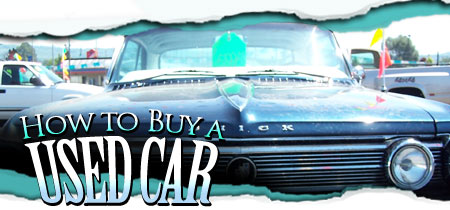
Buying a Used Car: Payment Options
You
have two choices when buying a use car — pay in full or finance over time.
If you finance, the total cost of the car increases, since you're also paying for the cost of credit,
which includes interest and other loan costs. You'll
also have to consider how much you can put down, your
monthly payment, the length of the loan and the annual
percentage rate (APR). Keep in mind that annual percentage
rates usually are higher and loan periods generally
are shorter on used cars than on new ones.
Dealers
and lenders offer a variety of loan terms and payment schedules. Shop around,
compare offers, and negotiate the best deal you can. Be cautious about advertisements
offering financing to first-time buyers or people with bad credit. These offers
often require a big down-payment and a high APR. If you agree to financing that
carries a high APR, you may be taking a big risk.
If you decide to sell the car
before the loan expires, the amount you receive from the sale may be far less
than the amount you need to pay off the loan. If the car is repossessed or declared
a total loss because of an accident, you may be obligated to pay a considerable
amount to repay the loan even after the proceeds from the sale of the car or the
insurance payment have been deducted. If your budget is tight, you may want to
consider paying cash for a less expensive car than you first had in mind.
If
you decide to finance, make sure you understand the following aspects of the loan
agreement before you sign any documents:
-
the
exact price you're paying for the vehicle
-
the
amount you're financing
-
the
finance charge (dollar amount the credit will cost you)
-
the
APR (a yearly measure of the cost of credit)
-
the
number and amount of payments
-
the
total price (sum of monthly payments & down payment)
(Source: www.ftc.gov) |